WATERVILLE — Hundreds of members of the Colby College community gathered on the campus lawn Thursday and heard their school president denounce societal attitudes about race that give him, as a white man, privileges he “did not earn.”
College President David Greene was among a crowd that gathered at noon to denounce a backlash of racially intolerant social media commentary that followed campus demonstrations protesting racial injustice.
“I walk through TSA lines in airports without being searched. I drive my car without fear of being stopped,” Greene said. “I’m never followed in stores. Cabs stop for me when I hail them.
“I never want to forget that the color of my skin, the size of my wallet, shapes the way I see and I experience the world.”
The midday rally came after a wave of backlash Tuesday and Wednesday criticizing student demonstrations at Colby earlier this week that reflected a wave of similar protests across the country drawing attention to the shooting deaths of unarmed black men in the U.S. specifically, and racial injustice in general.
Early in the week, comments appeared on Yik Yak, a popular social media application that lets users anonymously post messages to other users within 10 square miles.
On Thursday, the Yik Yak posts were seen printed and taped around the campus to show the kinds of response the activists received:
“you got black emojis now f—ing relax”
“Can’t wait until the next sensationalized case about a criminal (probably black) getting shot while trying to flee. #criminallivesmatter”
Another post on Yik Yak left no written comments but included a cartoon of a police officer and a gun pointed at a monkey.
The social media response prompted Greene and other faculty members to deliver frank remarks Thursday afternoon voicing support for the student activists, condemning the backlash and calling for ongoing and intentional campus conversations on racial issues. The school also plans teach-ins for Tuesday, in which students will discuss racial injustice topics in the classroom, and a dine-in — a meal at which the topic will be discussed.
“Those who raise their voices in support of social justice deserve our gratitude and our attention,” said Greene to a crowd of more than 500 Colby students and faculty who spilled across the lawn in front of Pulver Pavilion. Other students stopped and joined the group as they encountered it.
“Bigotry and targeted hatred have no place at Colby,” Greene said.
Students Organized for Black and Hispanic Unity held several protests earlier during the week, joining with others across the U.S. voicing their outrage over the police-shooting deaths of unarmed black men, along with calling out other social and racial injustices.
The students organized silent protests on Monday. On Tuesday they entered buildings, some wearing signs taped to their shirts saying “f— your breath,” in reference to an officer in Tulsa, Okla., who accidentally used his handgun instead of his stun gun to shoot Eric Harris, and when Harris said he was losing his breath, a deputy replied “f— your breath.”
On Wednesday the students held a “die-in” on campus, at which protesters occupied a campus building, lying down to symbolize lives lost to violence and hate.
When reacting to the social media posts Thursday, Colby professor Jill Gordon told a crowd of students and faculty that being part of the “we” that won’t tolerate hate can mean taking a social risk, but an important social risk.
“Don’t let that just be President Greene or the faculty who spent the time organizing the conversations for Tuesday. Don’t let it be other faculty members. And for sure, don’t let it just be those students who are the objects of these actions,” she said. ” I want to challenge you to be part of the ‘we’ that will not tolerate this.”
Green also brought up the recent shooting and other racial injustices in his speech, where he said there was a need for better dialogue.
“I want to be reminded that when one white police officer unloads his gun in the back of an African-American man in South Carolina or in Tulsa, Oklahoma, that we are all culpable for creating a society that thrives on inequity and racial injustice,” said Greene, prompting applause. “I want to be reminded that I have the luxury of not cautioning my son to fear police while many of my friends live in fear that their sons will one day be the victims of institutionalized violence and bigotry.”
Greene told the students that he has an obligation to see through the eyes of others and do what he can to even the playing field, where he enjoys privileges that he “did not earn.”
Ruth Jackson, vice president for communications at Colby, said plans are still in the works for a Tuesday teach-in and a dine-in on racism, hate and ways to promote inclusion and understanding.
Senior Aquib Yacoob, who attended the gathering, said the presence of faculty addressing the campus showed that students’ voices were listened to.
“Student input was heard in this,” he said. “Student input was heard in the creation of a space next week. So I’m very glad to see that happen. I think it’s crucial that student involvement continues to be a part of this conversation.”
Yacoob said he is both “very, very” excited, but cautious about a public dialogue planned for next Tuesday.
“I’m excited about the teach-in happening on Tuesday, but I’m cautious about whether we’re going to discuss the things that need to be discussed,” he said.
Associate Dean of Students Tashia Bradley told the crowd that those who have been holding the protests and pushing for conversations on race, cultural identity and sexual orientation have given the campus a gift. She said for some, the teach-in and dine-in will continue conversations they have been having all year, while for others it will bring them into the conversation for the first time.
“For those who have not been in the conversation, it may feel really awkward to start talking about these things,” said Bradley. “Because you might not feel as though you have the capital to be able to have the conversation. That’s OK. If you’re serious about this you’ll stay in the fight. You’ll stay in the dialogue.”
Senior Tionna Haynes, president of Students Organized for Black and Hispanic Unity, said that before hearing the speeches she wasn’t sure to what extent the faculty would tackle the issues in their talks.
“I think many of the students are surprised, refreshed and rejuvenated by the fact that they discussed white privilege and called out white students here but not called out in a negative way. They were called out in a socially responsible kind of way and were told it was important to care about this,” she said.
Senior Joseph Whitfield agreed and said he had not been expecting there to be such a strong call to action during the addresses and had not been expecting such a large turnout.
“I don’t think any of us were expecting that big of a crowd,” he said. “That was rejuvenating and refreshing to be having that conversation. They said it’s been something we’ve been talking about all year long, but for us it’s been four years.”
Kaitlin Schroeder — 861-9252
Send questions/comments to the editors.

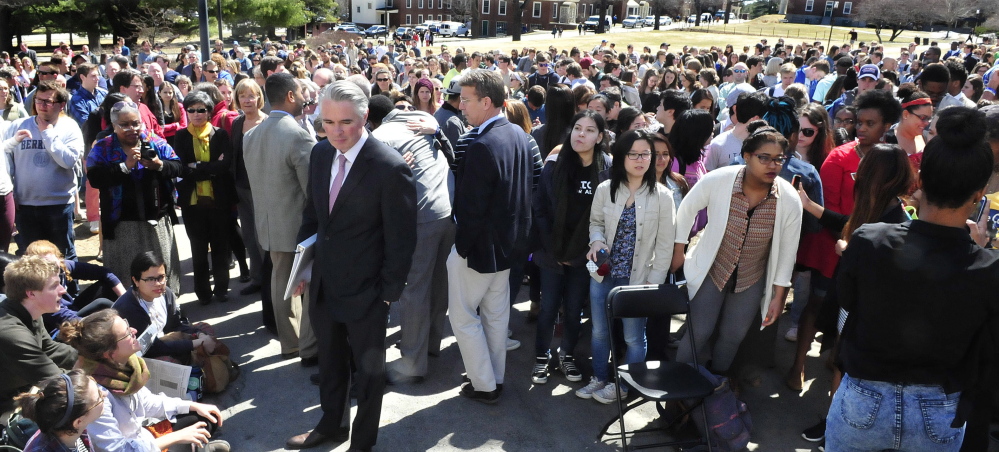
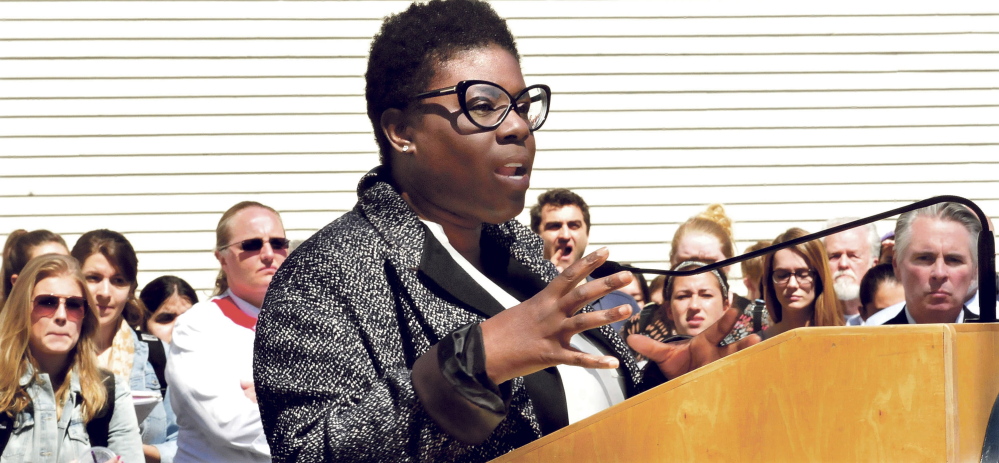
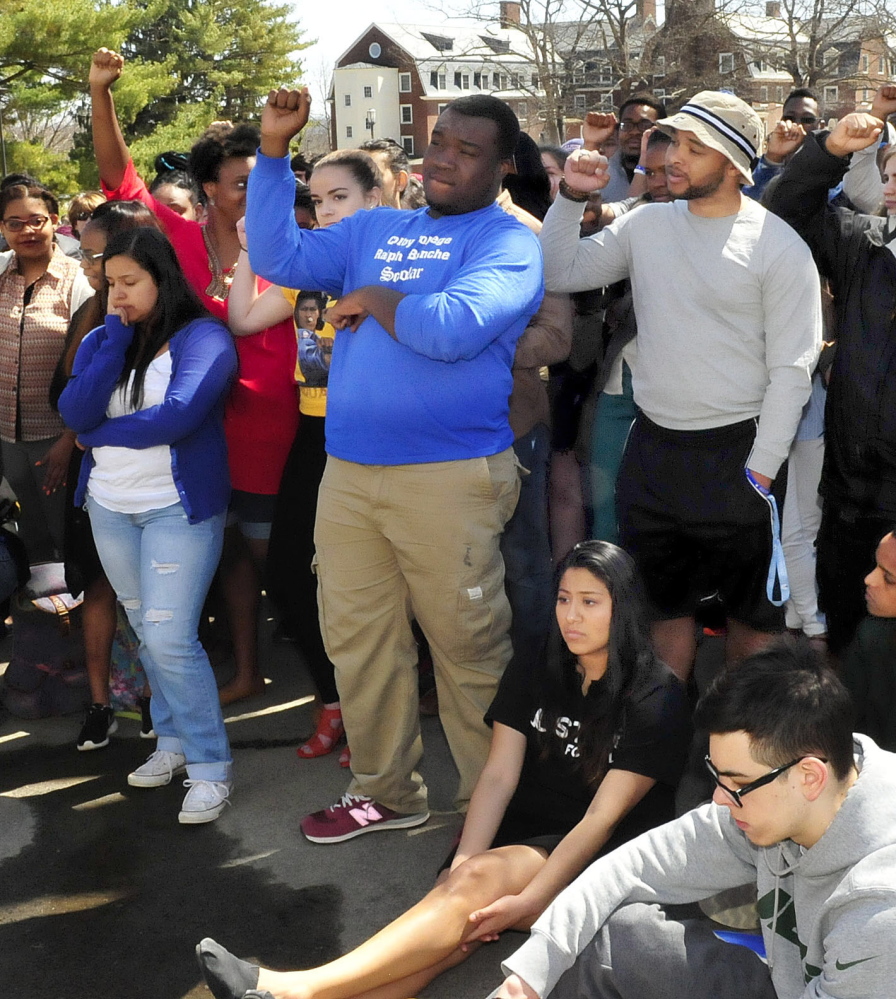
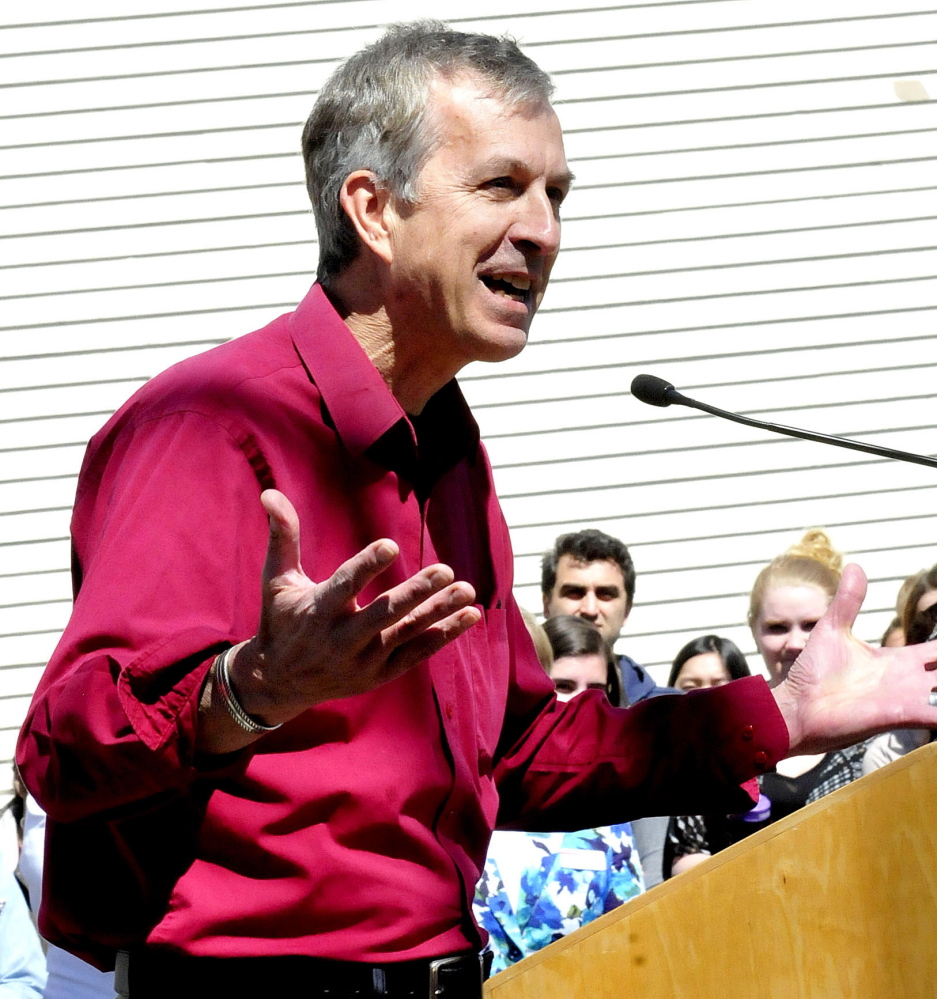
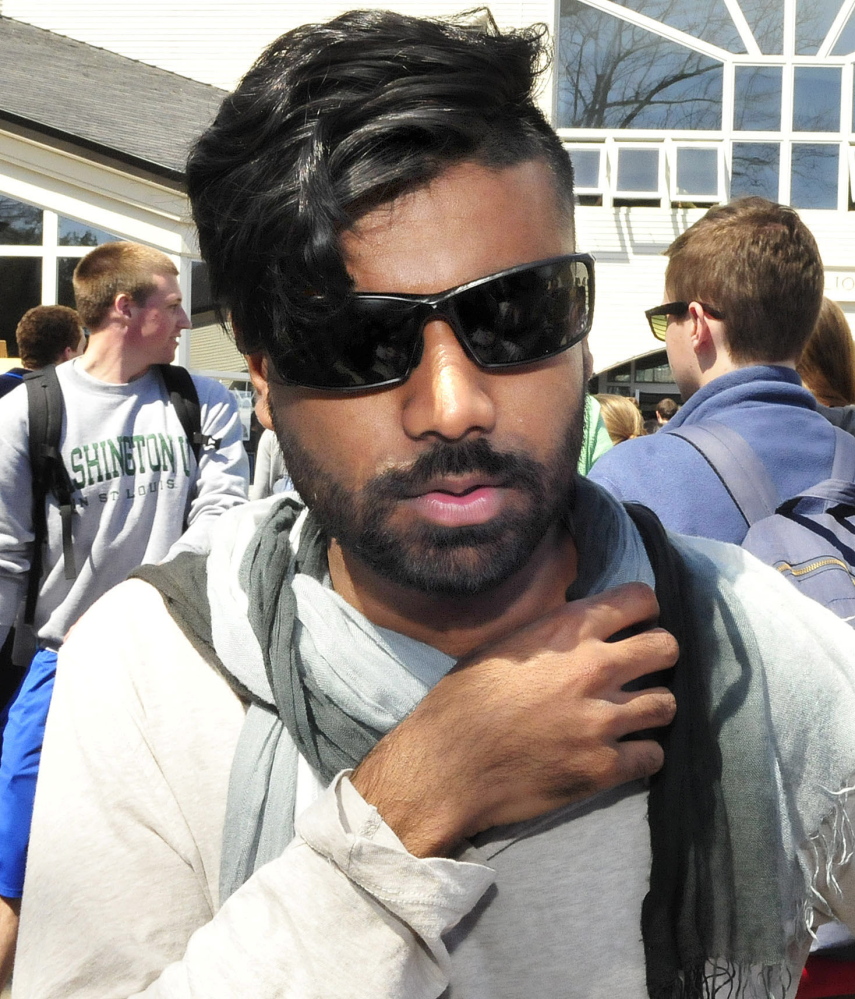

Comments are no longer available on this story